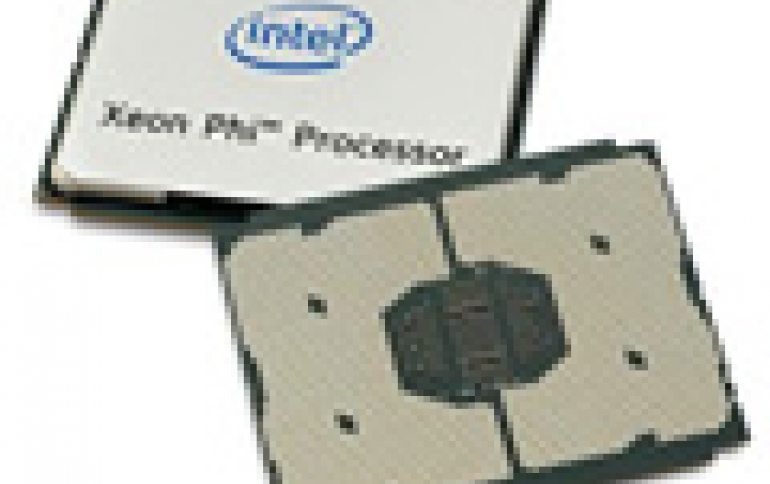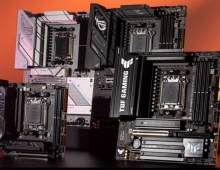
Intel 72-core Xeon Phi Chip Challenges GPUs In Machine Learning Applications
Intel has added the 72-core Xeon Phi 7290 chip to the lineup of its solutions designed to solve big challenges faster and efficiency, enable machines to learn without being explicitly programmed, in addition to helping drive new breakthroughs. Designed from the ground up to eliminate bottlenecks, the Intel Xeon Phi processor is the Intel’s first bootable host processor specifically designed for highly parallel workloads, and the first to integrate both memory and fabric technologies. Featuring up to 72 cores with ultra-wide vector capabilities (Intel Advanced Vector Extensions or AVX-512), the Intel Xeon Phi processor "raises the bar for highly parallel computing and effectively challenges GPUs," according to Intel.

"With no dependency on the PCIe bus, the processor is capable of handling a wide variety of workloads and configurations that are not supported by accelerators," Intel says.
Integration of 16GB of high-bandwidth memory delivers up to 490 GB/s of sustained memory bandwidth for memory-bound workloads, and the available dual-port Intel Omni-Path Fabric further reduces solution cost, power and space utilization.
The processor is binary-compatible with Intel Xeon processors, which allows it to run any x86 workload to optimize asset utilization across the data center. By contrast, special-purpose accelerators, like GPUs, often remain underutilized since applications are not always suitable or optimized for them. Standardizing on Intel architecture means you can use a single programming model for your code.
The latest 72-core Xeon Phi 7290 will start shipping in September for $6,294, making it Intel’s most expensive processor. The company also announced three other Xeon Phi chips with 64 to 68 cores.

The Xeon Phi chip package integrates some of the latest technologies. It has 16GB of integrated stacked memory and supports up to 384GB of DDR4 memory in a system. The Xeon Phi 7290 chip package draws 245 watts of power, and the 72 cores operate at a clock speed of 1.5GHz.
As Intel tries to break away from PCs, the chipmaker is also trying to link Xeon Phi chips to its latest technologies like the Optane memory, silicon photonics, FPGAs (field programmable gate arrays), and OmniPath interconnect. Intel is placing its bets on the fast-growing data center business.
Some of the top server makers, including Hewlett Packard Enterprise, Dell, and Lenovo, will use the Xeon Phi chips in servers and supercomputers.





















